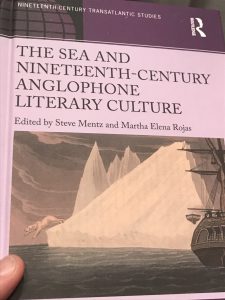I woke this morning to single digit temperatures in snow-blanketed CT. No heat, no water, no wifi. #frozenpipesarenotjustanallegory. Reflecting on the aftermath MLA and the plumbing in my home, I wondered: what’s the best way to get everything flowing again?
Training north out of snowy Philadelphia early the day before, I had been thinking about Hermione Granger. A lover of scholarly pursuits like the thousands of academics who gathered for #mla17, she values other things more —
Books! And cleverness! There are more important things – friendship and bravery and — (1.16.287)
Might the core virtues of adventure fiction — solidarity and courage — be things we academics need as much as books and cleverness, in the face of coming storms?
I went to MLA this year seeking radical hope, and I came back with some things to hold onto.
Signs of Hope
- My panel on hope buoyed me up during Saturday afternoon’s snowstorm, and no part more than the Lynne Bruckner‘s gorgeous and moving talk on “Hope and Breath in The Rape of Lucrece.” Lynne’s been a longtime leader in the early modern ecostudies community, and — as she courageously announced to the audience — this was her first public talk as she recovers from a traumatic brain injury. She was nervous beforehand but assured throughout. In a stunning conclusion, she performed the intake of breath that punctuates the caesura in the last line of Sonnet 18 — “So long lives this, [take a breath in] and this gives life to thee” — and demonstrated how perhaps the most familiar sonnet in the language can still stir new feeling. It was one of those talks during which you feel fortunate to be in the room.
- Books! Like Hermione and yet unlike her too, nothing entrances me more at MLA than the hopeful assemblage of books. So much beauty and cleverness on display! I came back with bags stuffed and lists ready for the University Library. I even saw, for the first time, a new volume with my name on its spine, alongside that of my wonderful co-editor Marty Rojas. The cover image shows a polar bear diving off an iceberg into cold water. We leave the allegory as an exercise for the reader.
- Patsy Yaeger’s “The ocean as quasi-object”: The essays in the book originated at the Hungry Ocean conference at the JCB back in 2011, and the almost six years between then and now have been a windy road. The most shocking loss was of our contributor, keynote speaker, and inspiring colleague Patsy Yaeger. With the support of Patsy’s husband and several of her colleagues, we’re very proud to have been able to complete and include her brilliant and generative essay in the book. I wish she could see what the next generation of ocean-scholars will do with her work: “Swimming with Marx and Latour brings us up to the limits of both theoretical perspectives, and possibly past them into a different model entirely. Ultimately, it may take poets to show the way” (167).
- Ecologies everywhere! I went to lots of sessions, but could not keep up with all the premodern ecocritical and Anthropocene panels. Among many favorites were Karen Raber’s “The World is Flat: Ecomaterialist Perspectives in the Renaissance,” and Jeffrey Cohen’s multiple sessions, including “Ecomedia” and “Extro-Fictions” (which I missed), and a great roundtable on Ecological Catastrophe that packed the house at 8:30 am. There were two Shakespeare enviro-sessions, on “Eco-rhetorics” and “Climatology” — plus many other sessions in and around the field, not all of which I could hear or overhear via twitter. Perhaps ecocrit has really arrived?
- Futures: The best kind of post-MLA feeling, other than the luxury of a good night’s sleep, is the sense that multiple good things are peeking above the horizon and many bubbling pots are being carefully tended. Despite the orange cloud rising soon in Washington, “something good” — to borrow from the wisdom of Plenty Coups — will also come.
And yet…
MLA always casts a melancholy shadow, as the conference rolls above a vast grey river of job-market misery. The human cost of the river of suffering seemed slightly less visible this year compared to a few years ago, perhaps because many first round interviews are now done via Skype, but our profession continues to devour our young. To the extent that I’m insulated from such melancholy, it’s due to being old & tenured & without a lot of students at MLA.
It feels cynical to feast on brilliant books and talks and imaginative excellences while keeping only one eye attuned to the plight of those who the “market” churns up. Even the word “market” seems dishonest, as academic job culture bears little resemblance to an economist’s ideal marketplace.
Today the MLA approaches a crossroads, with the search beginning for a new Executive Director and the long-central place of the MLA interview shifting under technological and financial pressures. Can the organization become a force to support its precarious members as much as it already does those (like me) who are comfortable? That’s the task. I hope whoever steps into the leadership role knows it.
Though I recognize that feeling able to choose is a privilege, I’m going with the hope that motion gives over despair at the academy’s frozen pipes. I’m also thinking about Hermione’s priorities: friendship and bravery over books and cleverness. Like most MLA-ers, I love the latter two things to distraction. What’s better than beautiful books and clever words? But we need not to forget the first two. We need friends and the courage to build better futures.
A little later on this chilly morning I learned that warmth, time, and patience can open blocked conduits. Plus I was pleased to benefit from whatever magic Comcast does to make the wifi reanimate. By 10 am my home was flowing and hopeful again.


Leave a Reply